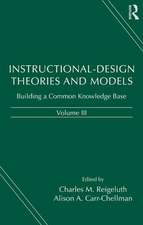Changing Schools: Progressive Education Theory and Practice, 1930-1960
Autor Arthur Zilversmiten Limba Engleză Paperback – 31 ian 1993
Nearly one hundred years ago America's foremost philosopher of education, John Dewey, set in motion the progressive education movement—an effort to enhance both child and community by establishing schools that would focus on the needs and interests of children, thereby turning out more productive citizens. To what degree did these ideas actually change the day-to-day lives of school children? What can the progressive education movement teach us about the conditions that facilitate and impede the implementation of new ideas about schools?
Through a focus on actual classroom practices in several school systems in the Chicago area, Zilversmit examines the impact of Dewey's ideas at a national and local level. He looks at the course of progressivism from the 1930s, when its influence was at its height but reform was difficult because of the Depression, through the post-World War II period when the baby boom led to rapid school expansion. The new affluence made reform possible, but the Cold War put progressivism on the defensive.
Zilversmit's goal is to illuminate the role of the ideas of the progressives in determining school practices so we can develop a better understanding of the relationship between education ideas and educational practices. This understanding, argues Zilversmit, will better enable us to determine new directions for educational reform, and to determine how reforms can be successfully implemented.
Through a focus on actual classroom practices in several school systems in the Chicago area, Zilversmit examines the impact of Dewey's ideas at a national and local level. He looks at the course of progressivism from the 1930s, when its influence was at its height but reform was difficult because of the Depression, through the post-World War II period when the baby boom led to rapid school expansion. The new affluence made reform possible, but the Cold War put progressivism on the defensive.
Zilversmit's goal is to illuminate the role of the ideas of the progressives in determining school practices so we can develop a better understanding of the relationship between education ideas and educational practices. This understanding, argues Zilversmit, will better enable us to determine new directions for educational reform, and to determine how reforms can be successfully implemented.
Preț: 288.97 lei
Nou
Puncte Express: 433
Preț estimativ în valută:
55.30€ • 57.13$ • 46.02£
55.30€ • 57.13$ • 46.02£
Carte tipărită la comandă
Livrare economică 25 martie-08 aprilie
Preluare comenzi: 021 569.72.76
Specificații
ISBN-13: 9780226983301
ISBN-10: 0226983307
Pagini: 270
Ilustrații: 18 halftones, 6 tables
Dimensiuni: 152 x 229 x 20 mm
Greutate: 0.38 kg
Ediția:1
Editura: University of Chicago Press
Colecția University of Chicago Press
ISBN-10: 0226983307
Pagini: 270
Ilustrații: 18 halftones, 6 tables
Dimensiuni: 152 x 229 x 20 mm
Greutate: 0.38 kg
Ediția:1
Editura: University of Chicago Press
Colecția University of Chicago Press
Cuprins
List of Illustrations
Preface
Acknowledgments
1: Progressive Education: A Definition
2: Old Wine, New Bottles
3: Progressive Schools in the 1930s
4: Progressive Education in the 1930s: The Local Perspective
5: Postwar Education: The Challenge
6: Progressive Education under Fire
7: Postwar Education in the Suburbs
8: Postwar Education in Middle America
9: Progressive Education and the Process of Reform
Tables: School and Community Statistics, 1930-1960
Notes
Index
Preface
Acknowledgments
1: Progressive Education: A Definition
2: Old Wine, New Bottles
3: Progressive Schools in the 1930s
4: Progressive Education in the 1930s: The Local Perspective
5: Postwar Education: The Challenge
6: Progressive Education under Fire
7: Postwar Education in the Suburbs
8: Postwar Education in Middle America
9: Progressive Education and the Process of Reform
Tables: School and Community Statistics, 1930-1960
Notes
Index












